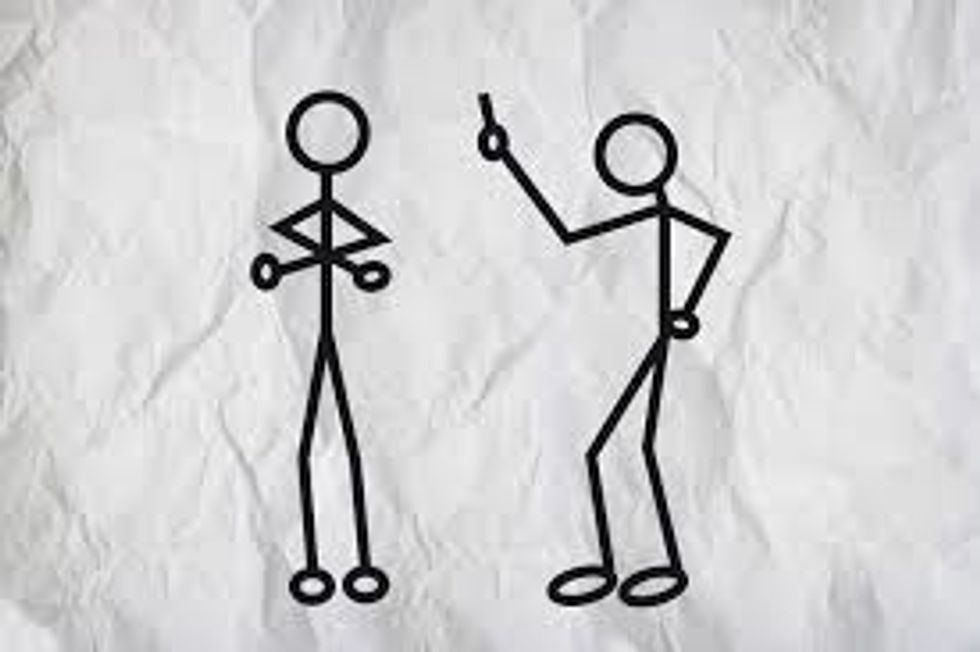If there is one thing my parents taught me, it is the art of confrontation. The earliest example I can remember is being in a movie theater with my family, when a large group of kids behind us were yelling and texting during the first half of the movie. The entire theater was angry, and you could sense the tension came from more than just the rapid car chase on screen. With one fluid motion, my mom quietly stood up and kindly told the kids how disruptive they were being. Each of them was horrified and apologetic, and didn't make one peep the rest of the movie. The theater was grateful and my mom sat with a power that I had never seen before: The Art of Confrontation.
A lot of people break a sweat at the thought of confrontation. It is often associated with yelling, getting up in someone's face, and letting out all of your emotions at once. However, confrontation isn't about a rush of anger and fear. Webster defines confrontation as, "a face-to-face meeting" and "the clashing of forces or ideals." This doesn't have to be a full-on fight.
So, do I follow in my mom's footsteps as the "Queen of Confrontation"? I asked some of my closest friends if they view me as being confrontational. I was disappointed to learn that they think I'm the least confrontational person ever. They explained me as being someone who would never get up in a person's face and argue until my lungs burst. I took this as a compliment, and it just reiterated the misconception of being confrontational.
How exactly does one live a life with confrontation? Well, it's an art. We can start there. A person develops specific skills in order to have the ability to confront a person, whether that be a friend, stranger, teammate, family member, or the coworker who keeps stealing your pasta salad out of the fridge. If you want to confront someone, view it as having a simple discussion where you share your thoughts, and then listen to theirs in return. It is important to stay calm during the conversation, so taking some time to think with yourself beforehand will be helpful. Think about what initially upset you and how you reacted. Ask yourself the hard questions that involve why the issue is annoying you or disrupting your thought. Of course, there will be times in a dark movie theater where you won't go through this process, but if you're laying in bed with a pit in your stomach because you need to confront someone tomorrow, take a deep breath, and think it out. Writing out the specific points that you want to touch upon will help you organize your thoughts clearly. Have a practice conversation with yourself in the mirror, and have alternative reactions to everything you say. This way, you can be prepared for whatever outcome occurs.
Confrontation doesn't need to be a spur of the moment act. You can pull someone aside and ask to speak with them later in the day, or shoot a text that leads to a talk later. Confrontation can be an easy conversation at the end of the day. Sit down, and share your thoughts. A key idea to keep in mind is to stay calm. The person you are talking to will react similarly to you. If you are kind and understanding, they should be too. Start the conversation by asking them to hear you out until the end and then you will listen to them. Set the ground rule down that they will have their time to talk as long as they listen now.
At the end of the day, you need to remember that confrontation might not always go your way. You can do everything right, and still have a negative outcome. You can only control your actions, and in doing so will hopefully get the best result. All in all, remember that when it comes to confrontation, you are the driver. Plan it out, stay calm, and have a conversation. Confrontation, is an art, and it is waiting to be learned and conquered.









































